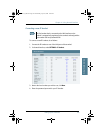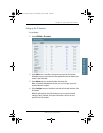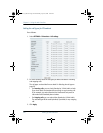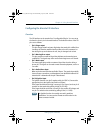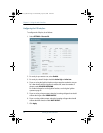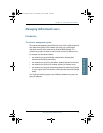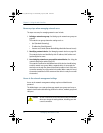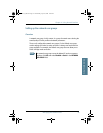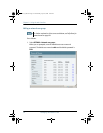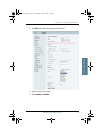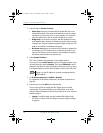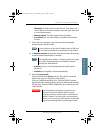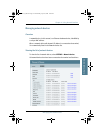
Chapter 4: Using the web interface
112 Managing LAN network users
Necessary steps when managing network users
The steps necessary for managing network users include:
1. Defining a network user group. See Setting up the network user groups on
page 113.
The network user groups determine settings such as:
• QoS (Standard/Streaming),
• IP addressing (Static/Dynamic)
• Internet access mode (Router Mode/Bridge Mode/No Internet Access)
2. Identifying a network device. See Managing network devices on page 119.
The network devices are identified by their IP address, MAC address and
(optionally) device name.
3. Associating the network user group and the network device. See Using the
network classification table on page 121.
The network classification table determines which devices should belong
to which network user group. When a network device is connected, the
terminal runs through the network classification table to check if the new
connection matches any of the entries in the table. When a match is found,
the terminal establishes a PDP context and the device is ready for use with
the terminal.
Access to the network management settings
Access to the network management settings requires an Administrator
password.
The Administrator can create and manage network user groups and set up a
network classification table defining priorities for devices, network groups and
LAN ports.
Caution! All user connections to the LAN interface may be affected
when you change the settings below, including your own
current connection.
BGAN-X_UM.book Page 112 Wednesday, April 30, 2008 12:48 PM




